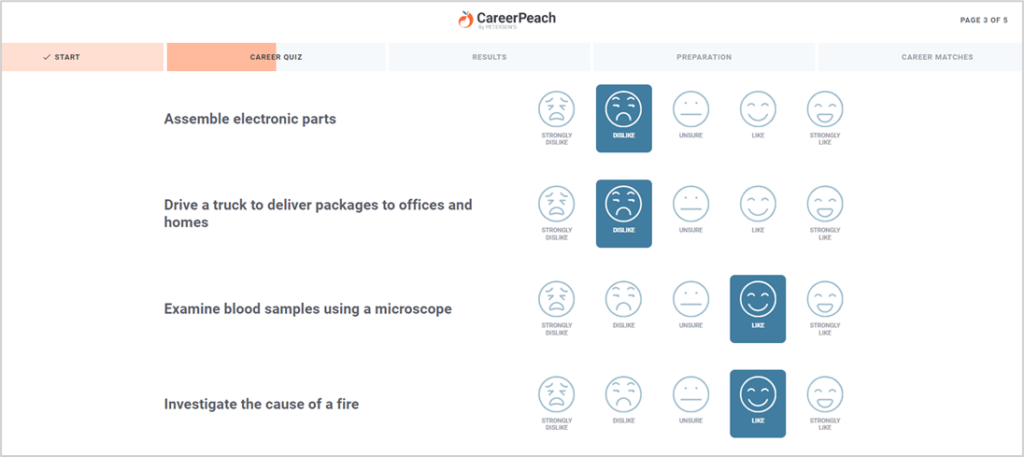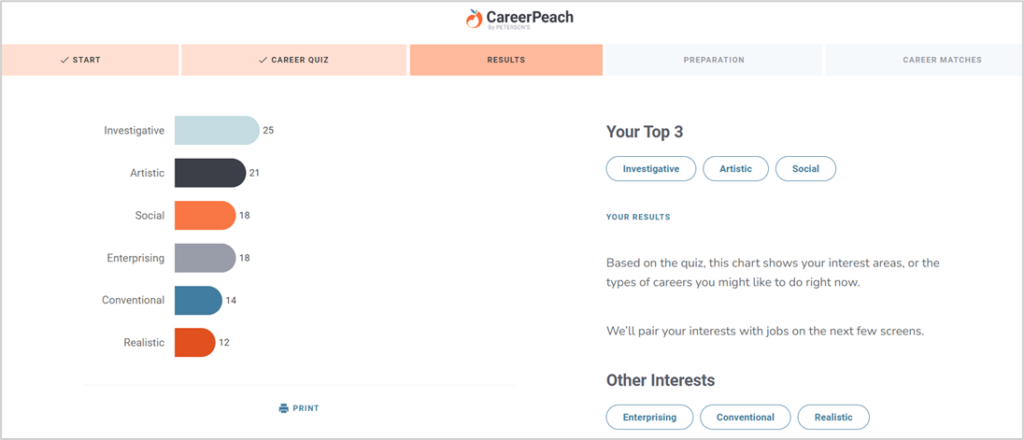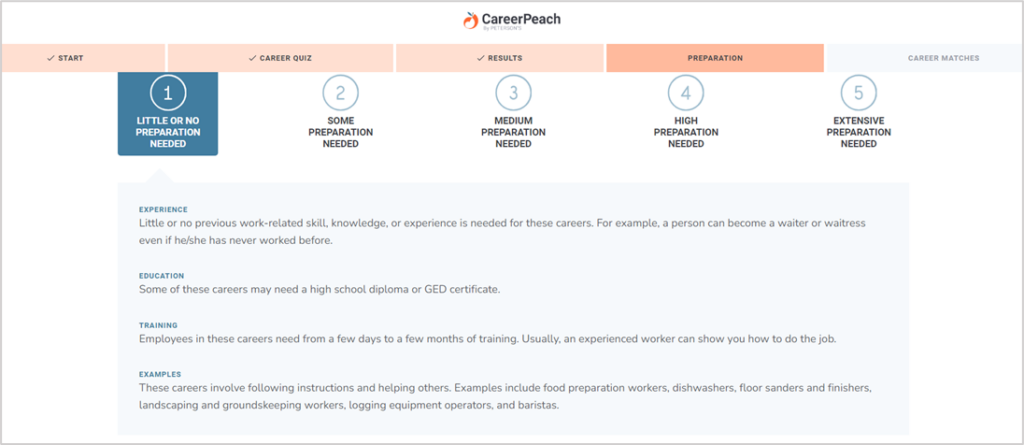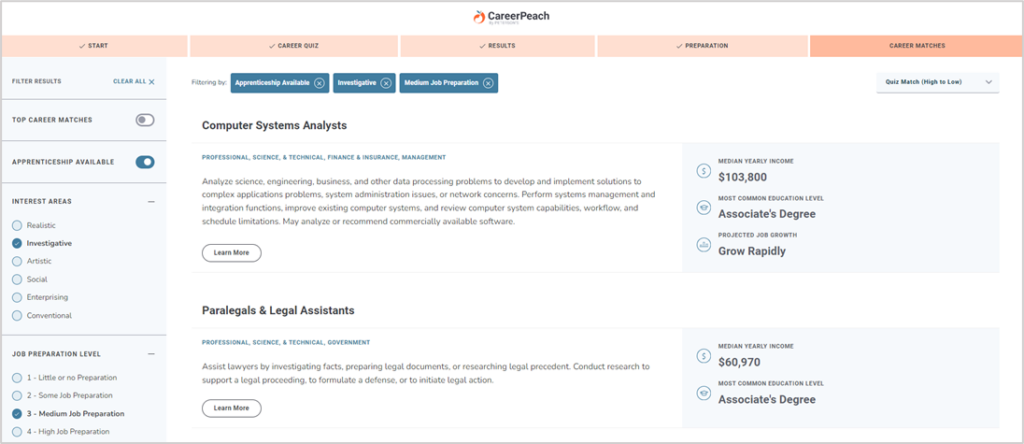| By Gale Staff |
From high school and college students to working adults, learners are accomplishing their education and career goals with Gale Presents: Peterson’s Test and Career Prep. In addition to test prep and college planning resources, Peterson’s Test and Career Prep connects users to career exploration tools to discover what careers match their strengths and interests, prepare for their job search, and find available roles.
Recent updates to Peterson’s Test and Career Prep bring users a new career assessment tool: Career Peach. This new module offers one 60-question quiz that matches users to character traits aligned to Holland Codes and careers to explore based on those traits.
What’s Different about Career Peach?
The new career assessment tool guides users through four stages: a career assessment quiz, their results, preparation requirements, and career matches.
- Users get their career assessment results after taking one assessment instead of the previous four separate tests in Peterson’s Test and Career Prep.
- Once users complete their assessments, they’re given character traits based on Holland Codes, a system developed by psychologist John Holland that’s widely used to help categorize career paths, including by the U.S. Department of Labor.
- Users can select their level of preparation to see jobs that fit their current or future experience levels.
- Users can look at available jobs without taking the assessment if they’re short on time.
- All job information can be translated into Spanish.
- Career information is provided by O*NET OnLine by the U.S. Department of Labor, Employment & Training Administration.
Stage 1: Career Assessment
Users can access the Career Peach module in two ways: browsing the menu or selecting the “Explore Career Options” icon on the home page. The first stage is the career assessment quiz, which includes 60 questions to analyze the interests of the user. During the quiz, users choose how much they would like or dislike doing particular tasks in their careers.
Stage 2: Results
After completing the assessment, users are shown which character traits they scored highest in based on the Holland Codes. Explanations help users understand how these character traits relate to possible careers.
Work personalities according to the Holland Codes:
- Realistic: Individuals who prefer working with things. They like hands-on work with concrete tasks, objects, machines, tools, plants, or animals.
- Investigative: Individuals who prefer working with ideas and facts. They like to observe, learn, investigate, analyze, and solve problems.
- Artistic: Individuals who prefer to work with ideas and things. They like to create art, ideas, and programs.
- Social: Individuals who prefer to work with people. They like to teach, coach, inform, and help others solve problems.
- Enterprising: Individuals who prefer to work with people and data. They work with organizations to influence, persuade, lead, and direct others.
- Conventional: Individuals who prefer to work with data and numbers. They like to enter information, carry out detailed tasks, and have clerical or numerical interests.1
Stage 3: Preparation
Before users are matched with their ideal careers based on their results, they’re asked to consider how much preparation they are willing to complete. Choosing low preparation will connect users to jobs that require low levels of training, whereas choosing high preparation will connect them to careers that require years of additional education or training.
Preparation is distinctly different from experience. For example, a retail manager could have years of experience, but the preparation needed to get into the career is relatively low. In contrast, a cancer researcher may be just out of college, but need a Ph.D. to start looking for a career, requiring a higher level of preparation.
Users can set their preparation level as either their current level of experience or what they plan to get in the future.
Stage 4: Career Matches
The final stage of the career assessment culminates all the user’s responses and results into ideal career matches. Results are toggleable, so users can see careers based on how well they match and what they’ve expressed interest in. The career matches stage includes information like an overview of the career, median yearly income, education needed, and projected job growth.
Ready to help your users find more fulfilling careers? Share the news about the new Career Peach assessment tool within Peterson’s Test and Career Prep today!
Not a subscriber of Gale Presents: Peterson’s Test and Career Prep? Request a trial of this accessible education and career planning resource, named “Overall Career Prep Solution of the Year” in the 2024 EdTech Breakthrough Awards.
1“DOL Career and Credential Exploration (C2E) Participant Guide,” Department of Labor, January 2021.






